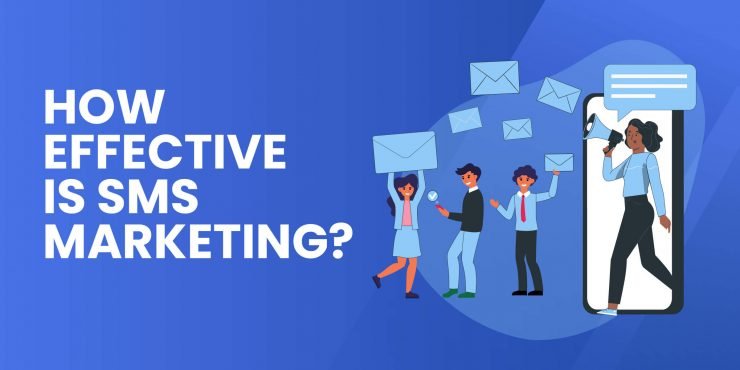Texting your customers might seem straightforward, but there's more to it than meets the eye.
Over the years, I've seen firsthand the impact SMS marketing can have. Trust me, navigating the world of SMS platforms can be tricky. That's why I'm here to guide you through the maze.
Let's look at the real effectiveness of SMS marketing and uncover its key benefits together. Ready to explore how SMS marketing can transform your customer engagement? Let's get started.
Best for Small Businesses
Best for Medium to Enterprise
We offer this website completely free to our visitors. To help pay the bills, we’ll often (but not always) set up affiliate relationships with the top providers after selecting our favorites. However, we do our best not to let this impact our choices. There are plenty of high-paying companies we’ve turned down because we didn’t like their product.
An added benefit of our relationships is that we always try to negotiate exclusive discounts for our visitors.
Benefits of SMS Marketing
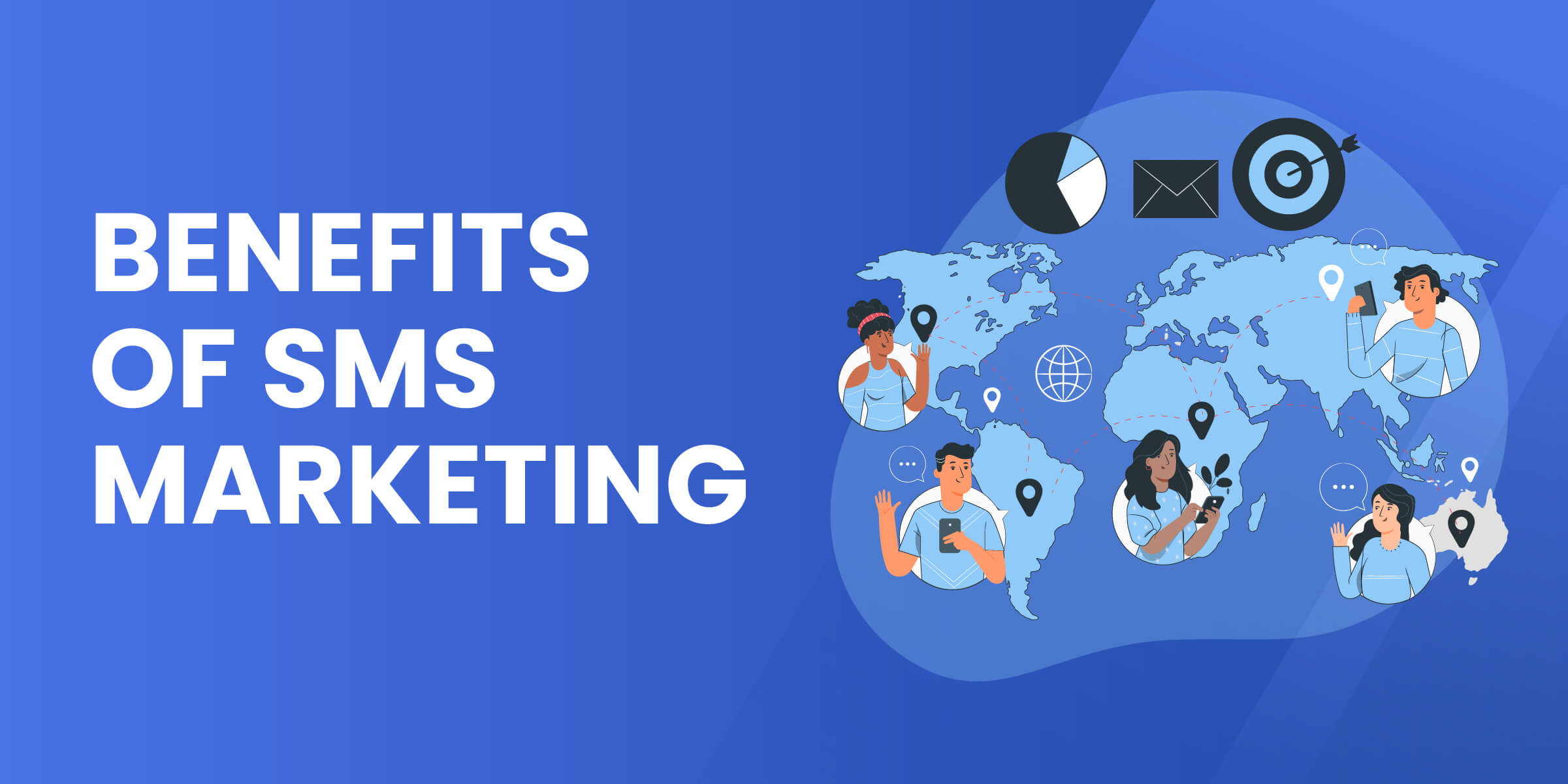

SMS marketing is a cost-effective, highly reachable, and personalized form of communication that can be used to engage customers and drive sales.
It allows businesses to send messages directly to their target audience in an instant, with the potential for high open rates and click-through rates.
The biggest indicator of just how effective SMS marketing is is the 98% open rate that text messages get.
Here are a few other benefits of using this marketing technique.
Cost-Effective
SMS marketing is one of the most affordable forms of digital marketing available today. Businesses only pay for the messages they send out; there are no additional costs or fees associated with using this type of communication.
This makes SMS marketing ideal for small businesses that may not have large budgets but still want to reach their target audience effectively.
Check out our calculator to see which provider is the most cost-effective option.
Reachability
The biggest benefit of SMS marketing is reachability.
A large percentage of adults have access to a phone with SMS capabilities built in. This means that folks don’t have to create an email account or even download the app for one, making the possible pool of people larger than other marketing options.
With SMS messaging, businesses can quickly and easily reach their target audience without having to worry about geographic boundaries or time zones.
Messages can be sent out instantly from anywhere in the world at any time of day or night, making it a great way to stay connected with customers regardless of where they are located.
SMS marketing platforms also give the option to schedule messages ahead of time so you can reach people at every timezone easily.
Personalization
One major benefit of SMS messaging is its ability to personalize messages based on customer preferences and interests.
By collecting data on customer behavior through surveys or other methods, businesses can tailor messages specifically for each individual recipient so that they feel more engaged and valued as part of your brand’s community.
SMS marketing platforms allow for autofill options where you can also fill in each customer’s name, allowing for an even more personalized connection.
Strategies for Effective SMS Marketing
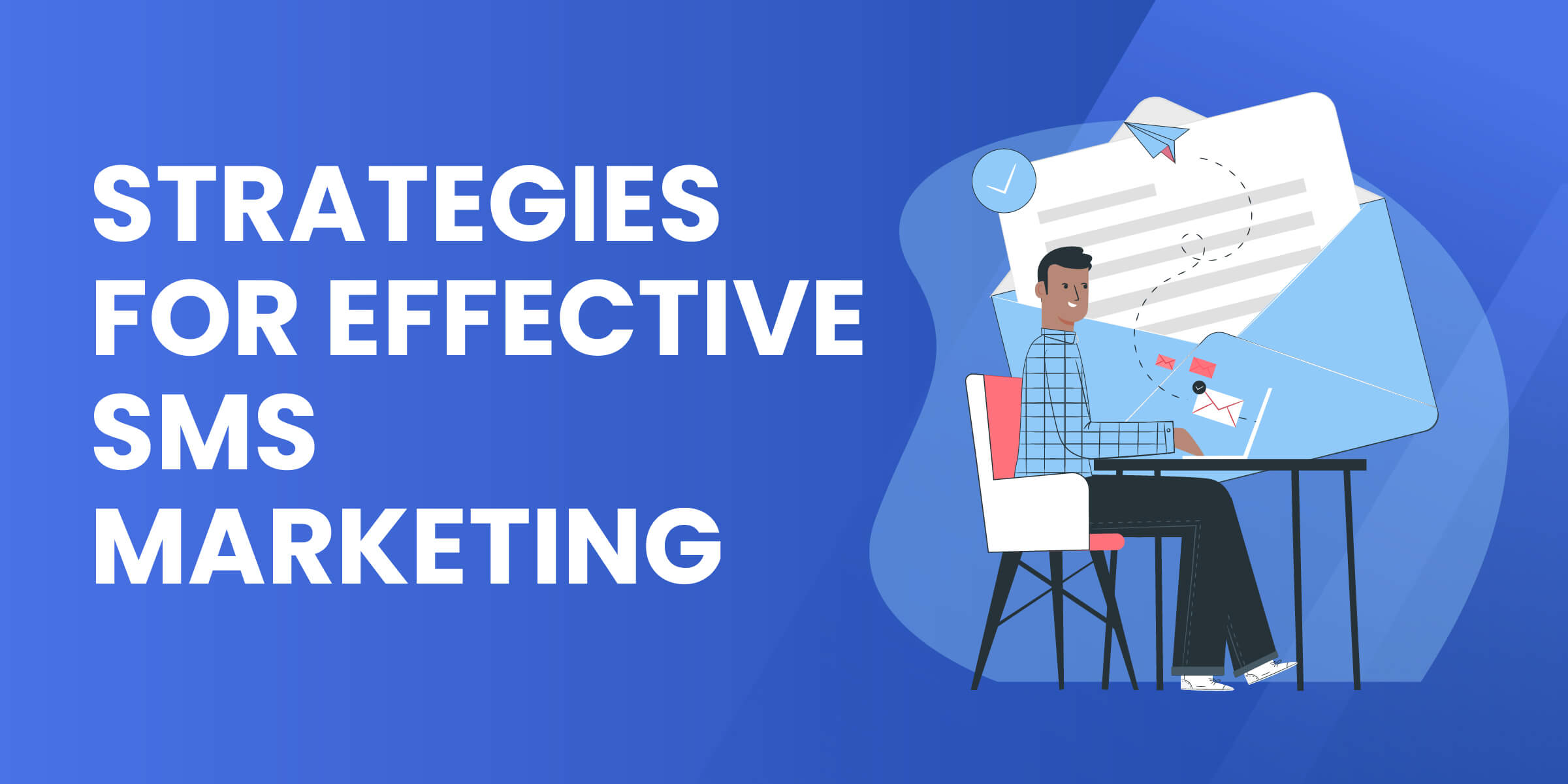

While SMS marketing is undeniably a stellar marketing tool, businesses need to be strategic to make their SMS marketing campaigns as effective as they can be.
This includes timing and frequency of messages, targeting the right audience, and ensuring content quality.
With the right strategies, SMS marketing can be a powerful tool to drive customer engagement and loyalty.
I’ve pulled together a quick guide for how to implement SMS marketing into your workflow to get you started. For a fuller guide, check out “How To Start an SMS Campaign: Ultimate Guide.”
Step-by-Step Guide to Implementing SMS Marketing Strategies
Step 1: Define Your Objectives
- Identify Goals: Determine what you want to achieve with your SMS marketing campaign. This could be increasing sales, promoting a new product, improving customer engagement, or gathering feedback.
- Set Measurable Targets: Establish clear, quantifiable targets like a specific number of conversions, a desired increase in website traffic, or a targeted response rate.
Step 2: Understand Compliance and Permissions
- Learn About Regulations: Familiarize yourself with legal requirements like GDPR in Europe or TCPA in the USA.
- Get Consent: Ensure you have explicit permission from recipients to send them SMS messages. This can be done through opt-in forms on your website or in-store.
Step 3: Choose the Right SMS Marketing Platform
- Research Providers: Look for platforms that offer features like automation, easy integration with your CRM, and analytics.
- Test and Select: Try out a few platforms (many offer free trials) and choose one that aligns with your needs and budget.
Step 4: Segment Your Audience
- Create Targeted Lists: Segment your audience based on criteria like purchase history, location, or interests to personalize your messages.
- Customize Content: Tailor your messages to each segment to increase relevance and engagement.
Step 5: Craft Your Messages
- Keep It Short and Clear: SMS messages should be concise (160 characters or less) and to the point.
- Include a Call-to-Action (CTA): Make it clear what you want the recipient to do next, whether it’s visiting a website, redeeming a coupon, or attending an event.
Step 6: Schedule and Send
- Timing is Key: Schedule messages for times when recipients are most likely to read and act on them. Avoid early mornings or late nights.
- Test Before Sending: Always send a test message to check for errors or formatting issues.
Step 7: Monitor and Analyze Performance
- Track Metrics: Use your SMS platform’s analytics to monitor open rates, click-through rates, and conversion rates.
- Adjust Based on Feedback: Use the data to refine your strategy, tweaking message content, timing, or audience segmentation as needed.
Step 8: Iterate and Improve
- Gather Feedback: Conduct surveys or ask for direct feedback from your audience about your SMS campaigns.
- Continuously Optimize: Use feedback and performance data to continuously improve your SMS marketing strategies.
Timing and Frequency
Timing is key when it comes to SMS marketing. Businesses should consider the best time of day to send out messages, as well as how often they should be sent.
Sending too many messages can overwhelm customers while sending too few can make them forget about your business altogether. It’s important to find a balance that works for both you and your audience.
Targeted Audience
To ensure maximum effectiveness, businesses should also focus on targeting their audience appropriately.
This means segmenting their customer base into different groups based on factors such as age, location, interests, etc. so that each message is tailored specifically for each group.
By doing this, businesses will be able to create more personalized campaigns that are more likely to resonate with their target audiences.
Clear and Concise Messaging
The quality of content in an SMS campaign is just as important as its timing and frequency.
Messages should be clear and concise, while still effectively conveying the desired message.
Additionally, businesses should strive to use language that resonates with their target audience by avoiding jargon or overly technical terms whenever possible.
Measuring the Success of SMS Campaigns
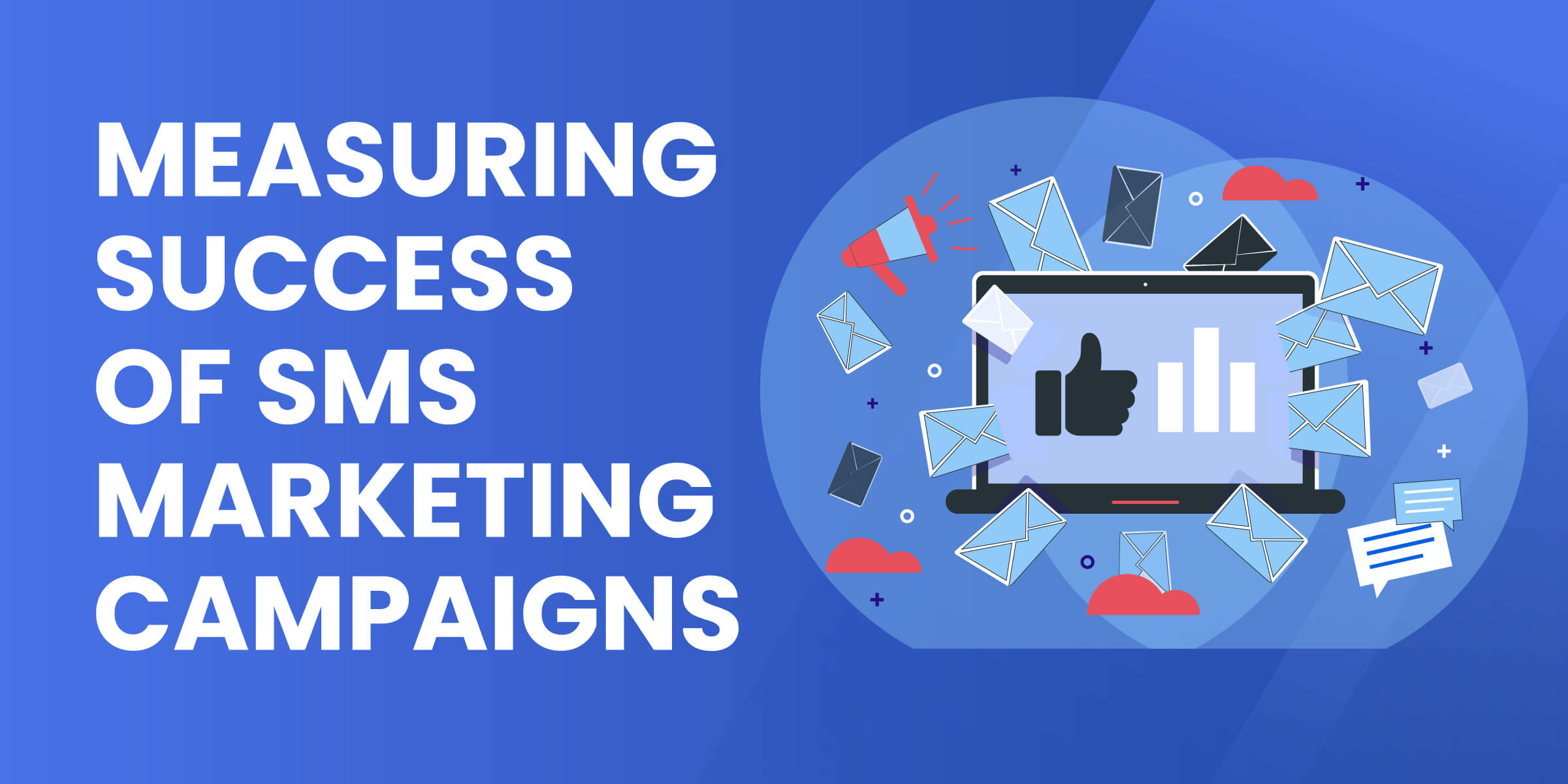

Measuring the success of SMS campaigns is essential for businesses to determine whether their efforts are paying off.
Open Rate and CTR
Open rate and click-through rate (CTR) are two key metrics that can help gauge how well an SMS campaign is performing.
The open rate measures the percentage of people who opened a message, while CTR tracks how many people clicked on links within a message. These metrics provide insight into how effective a business’s messaging strategy is in engaging customers.
Conversion Rate and Return on Investment (ROI)
Conversion rate and ROI are also important indicators of success when it comes to SMS campaigns.
Conversion rate measures the number of people who took action after receiving an SMS, such as making a purchase or signing up for an email list.
ROI helps businesses understand if they’re getting more out of their investments than what they put in by calculating profits earned from each dollar spent on marketing activities related to the campaign.
Customer Feedback and Surveys
Surveys can provide valuable insights into customer preferences, attitudes towards products or services, and overall satisfaction with communication strategies used by businesses during campaigns.
Additionally, customer feedback can give businesses direct information about what worked well and what could be improved upon in future messages sent out via text message marketing platforms such as SimpleTexting and Text Magic.
Best Practices for SMS Marketing Campaigns
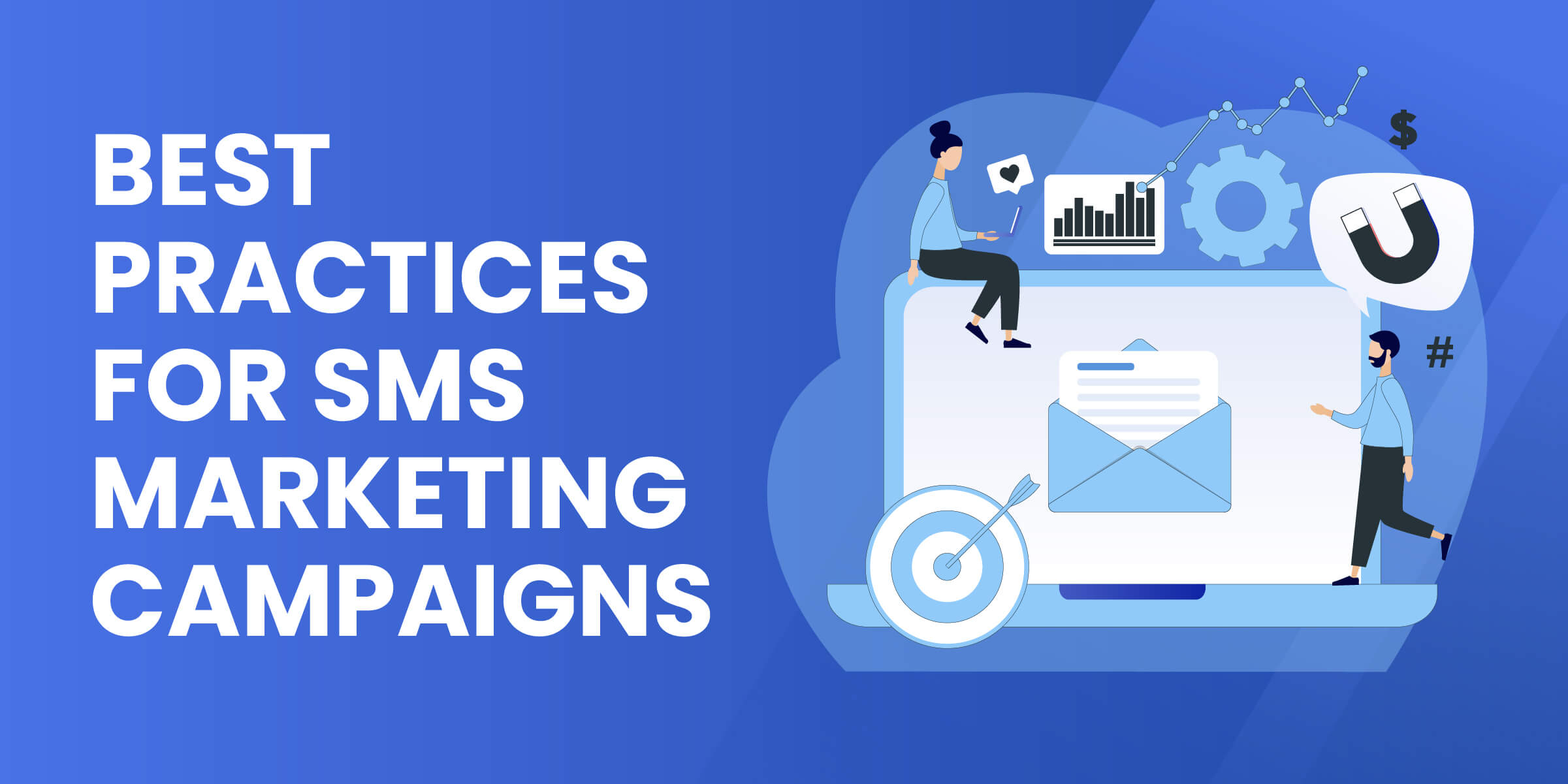

To maximize SMS marketing effectiveness, keep messages short and sweet (under 160 characters), use automation tools to schedule messages in advance, include an opt-out option in every message, and leverage other channels such as email, social media platforms, and mobile apps.
Keep Messages Short and Sweet
The key with SMS messages is brevity – keep them short and sweet! Keep the message under 160 characters so that it fits within one text message.
Use clear language that gets your point across quickly without any unnecessary words or jargon.
Make sure you include a call-to-action (CTA) at the end of each message so customers know what action they should take next.
Use Automation Tools to Schedule Messages in Advance
Automation tools are essential for managing large volumes of SMS messages efficiently and effectively. They allow you to schedule messages ahead of time so they go out on specific days or times when your target audience is most likely to engage with them. This ensures that your campaigns are always running smoothly without any manual effort required from you or your team members.
Include an Opt-Out Option in Every Message
It’s important that customers have the option to opt-out of receiving further communications from you if they wish to. This helps ensure compliance with data protection regulations such as GDPR and CCPA.
Include an opt-out link at the bottom of every message so customers can easily unsubscribe if desired – make sure this link goes directly back into your database so their contact information can be removed immediately upon request.
Best for Small Businesses
Best for Medium to Enterprise
Conclusion
Together, we've learned a lot about SMS marketing. This isn't just another trend. SMS marketing is a powerful way to connect with your customers on devices they use every day. Now it's your turn to take the wheel.
Not sure what to do next? Don't miss out on more of DDIY's marketing tips and tricks. They can change the way you do business. Sign up for the DDIY newsletter now, and let's keep the conversation going.
FAQs
What are the major benefits of SMS?
SMS (Short Message Service) is a powerful communication tool for businesses. It allows companies to quickly and easily send text messages to customers, employees, or other contacts. The major benefits of SMS include increased reach (with a 98% open rate!), cost efficiency, and improved engagement.
How successful is SMS marketing?
SMS marketing is a successful tool for businesses with an average open rate of 98%, a high response rate, and opportunities to connect more personally and quicker than other marketing tools.
How is SMS effectiveness measured?
SMS effectiveness is measured using things like CTR (click-through rate), ROI (return on investment), open rate, conversion rate, and customer surveys and feedback.
Why is SMS marketing so effective?
SMS marketing is effective because it has the ability to reach many customers, it makes interacting with your business easier, and it allows for greater personalization, strengthening customer loyalty.














